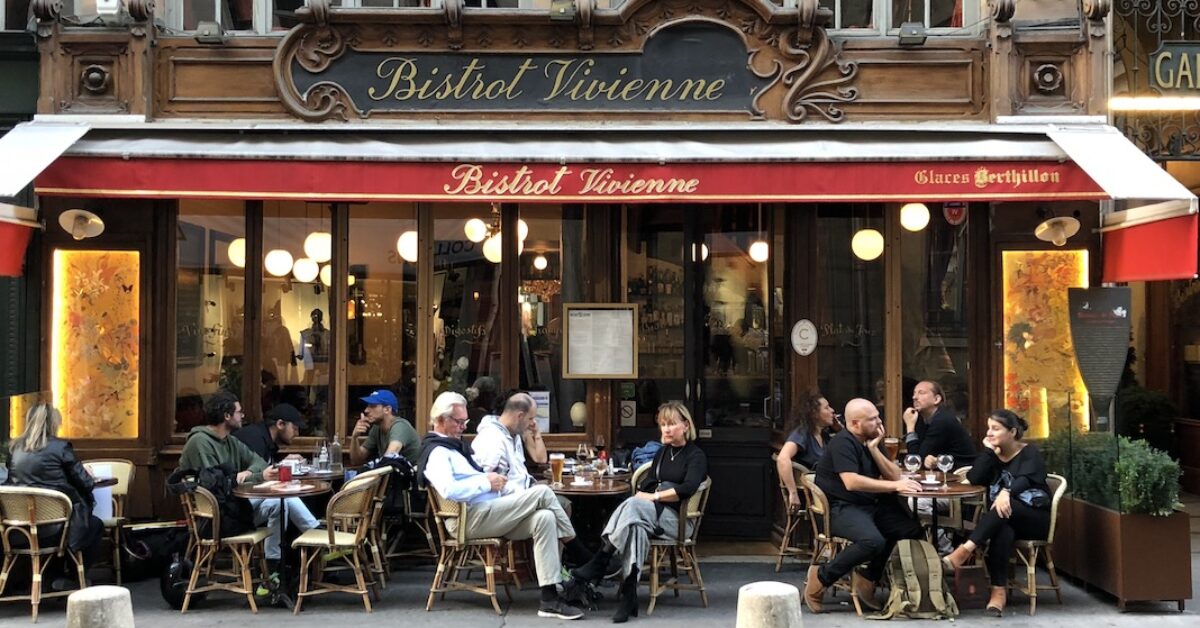To speak real, native, authentic French-born, fluent Français, you need to learn the words, phrases, exclamations, and verbal tics that French people use and have while they speak. In pursuit of this fluency, Frenchly has been eavesdropping on French people for the past three months to find out what they really say. Following our February and March lists, here’s the April list of 11 essential French words and phrases to master.
1. Tu vois?
“Tu vois?” is one of those great distinctly-French-things you can drop into a sentence to make yourself sound more French. It means, “you see?”, “ya know?”, or “you know what I mean?”. Some younger people add “genre” like “genre, tu vois?” or “tu vois, genre?” Just put the phrase on the end of a sentence where you’re explaining something and you’re golden, because sounding like a native French speaker really is about adding filler sounds and words, tu vois, genre?
2. Oulah
An exclamation that sounds like “oo-lah,” you’ll use this when you’re surprised about a bad thing. When your friend says getting her iPhone home button fixed cost $349, you’ll respond “oulah!”. Make sure to drop the tone at the end and, to be extra French, shake your hand down low while you say it.
3. Chaud
We’re not talking about temperature. “Chaud” with être is an adjective meaning to be good at something or on fire (like you’re on a hot streak). If you’re playing pingpong with your coworker and he’s never missed a serve, you could comment “tu es chaud.” Note: you can’t use it with non-activities, like you couldn’t say a movie is chaud. It has to be with an activity or action.
4. C’est chaud
So “Il est chaud” means “he’s really good,” but “c’est chaud” means “that’s bad.” The difference is the “c’est.” If it’s je, tu, il, elle, on, nous, vous, ils, or elles, then chaud is good; if it’s c’est, then chaud is bad. Say it seriously and with a low voice, kind of in the way you’d ominously say, “well, I guess you’re screwed…”. For emphasis, add the quintessentially-French low handshaking motion.
5. Canard
“Un canard,” meaning duck, is what you call a guy who is always with his girlfriend, prioritizing her over his friends, and following her everywhere (like a duck). It’s not a good thing for a guy to be called “un canard”; it’s like the French equivalent of saying a guy is whipped.
6. Schlinguer
Easy enough, “schlinguer” is the more familiar way to say “puer” meaning to smell bad. It’s on the same level of stinkyness as “puer.” You can tell someone “tu schlingue,” or comment “ça schlingue” on a pile of grody laundry, or deny smelling bad with “je ne schlingue pas.”
7. Balles
This excellent noun is slang for bucks, as in dolla dolla bills y’all. When your roommate asks how much you spent on that delectable sushi platter you’re eating, tell her “sept balles” because it’s from Trader Joe’s and you’re not trying to spend $18 on five tiny pieces of sushi. “Balle” is technically feminine, but it’s treated as masculine. L’Academie Francaise no doubt hates this, but L’Academie Francaise is 35 old (mostly white, mostly male) people so… go ahead and write and pronounce it as “un balle” or “des balles.”
8. Quiche
If you call someone “une quiche” they are not a delicious breakfast food. Calling someone a quiche means that they’re stupid or bad at something. At karaoke after your friend sings Shania Twain horribly, say “t’es une quiche.”
9. Péter un câble / un boulon
Literally translated, “péter un cable” or “péter un boulon” is to break a cable or break a nut. In meaning, it’s to freak out, go crazy, or lose your mind. It can be positive (like someone went all-out for something) or negative (like someone actually freaked out). If your friend buys 20 cookies for a group of four people (which is a great way to go crazy) you could say “il pète un câble!” (note the irregular conjugation). On the other hand, if you yell at your girlfriend for never taking the trash out, she will definitely go tell her friends that “il pète un câble.”
10. Inutile
Simple enough, “inutile” means unnecessary, pointless, or useless. This adjective is on the list because your French teacher probably let you go on and on saying “on n’a pas besoin de” or “c’est pas nécessaire” or something else lengthy.
11. Il y a la queue
Call us crazy, but “il y a la queue” (there’s a line) really is an important phrase to learn. Why? Because the world is full of lines you have to wait in, and the French hate waiting in line. Learn this phrase so the next time you and your French friends arrive at a bar and see a line to get in, you can moan “il y a la queue” and lead the search for another bar.
Want more? Click here for February’s list, and here for March’s list!






